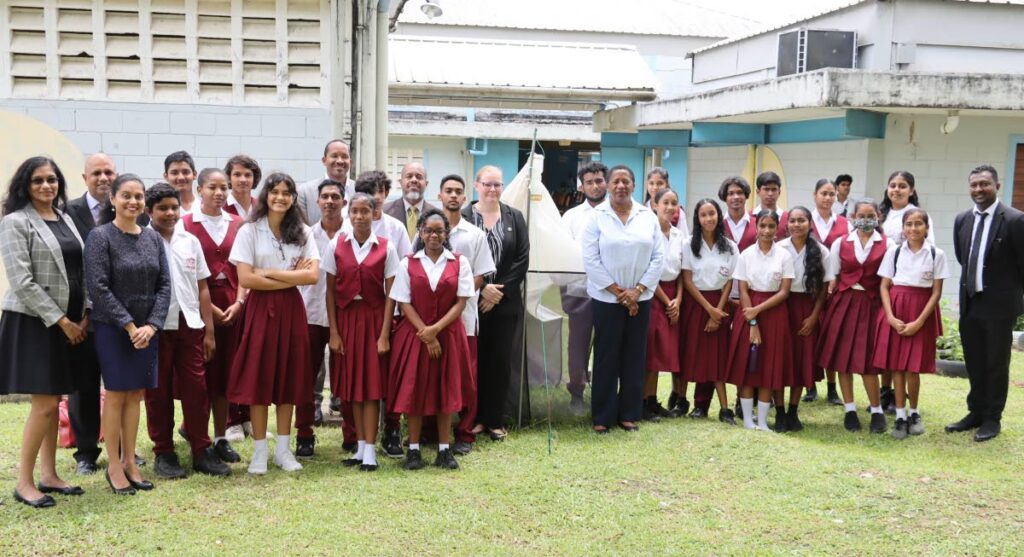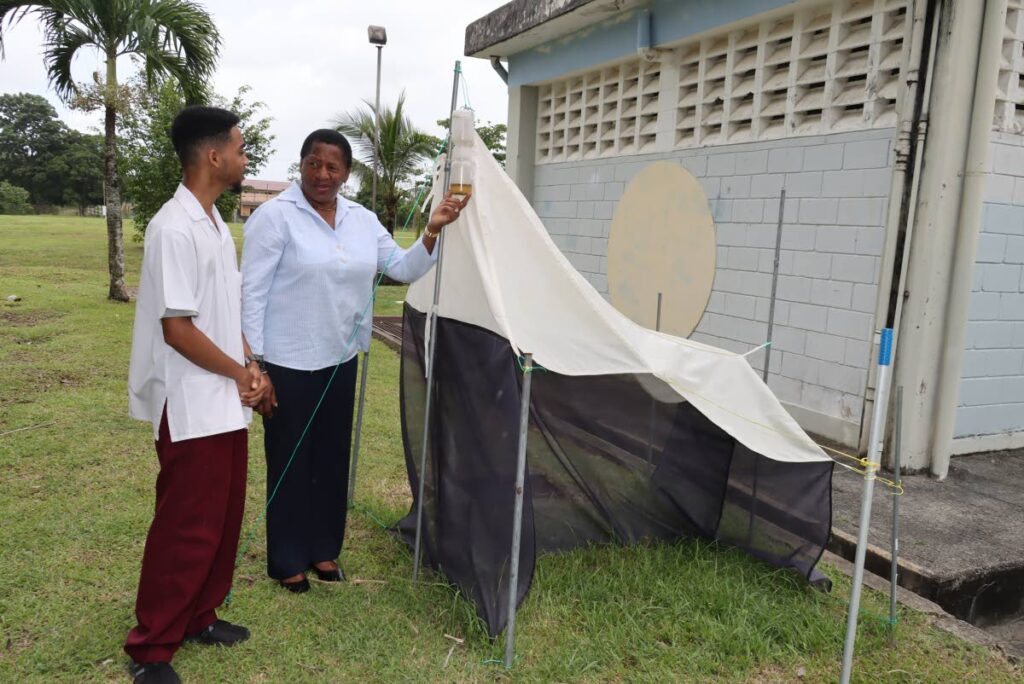Brazil Secondary students join in global science project

Students of Brazil Secondary School are participating in a scientific data collection project through the BioSCAN programme, one of the many educational and scientific research environmental programmes formulated by BES Net TT.
The Biodiversity and Ecosystem Services Network (BES Net) is spearheaded by the International Barcode of Life Consortium, IBOL under collaboration with the Environmental Policy and Planning Division at the Ministry of Planning and Development.
With its ongoing environmental drive, IBOL has chosen the school as one of its four sites to participate in the BioSCAN programme –an initiative spearheaded by IBOL and seeks to map out flying insect across the globe, using malaise traps as the main sampling tool.

Students learn and apply scientific methods in a practical sense and contribute to data collection that will be beneficial in guiding policy and decision-making with respect to conservation and natural resource management.
With the guidance of their teachers and Globe programme co-ordinators, the students have collected 18 weeks worth of insects from the traps, which have been preserved and are currently being prepared for shipping for identification.
The insects captured will be genetically barcoded by IBOL to assist in the creation of a local biodiversity database, extending across the globe.
Minister of Planning and Development Pennelope Beckles visited the school at Arena Road, Brazil Village, on June 30 to observe the school’s progress with its biodiversity project. She told the students, “You, the students, are the stewards of nature and our natural resources. And you at Brazil Secondary School – you are leading the way. This is indeed a superb accomplishment.
“Your invaluable work greatly contributes to the development of science on a national scale. So keep up the great work principal, teachers and students. What you do here is not for today alone, but for a better, healthier future for us and the generations to come.”
Beckles was joined by representatives of the Education Ministry and a team of the Environmental Policy and Planning Division and other agencies. Curtis Thomas, principal of Brazil Secondary School thanked visitors for coming and said the school was light years ahead of most other local schools in academic achievements over the past decade.

Since July 2006, with the formation of Globe Club at the Brazil Secondary School, many of the students were energised by its informal curriculum approaches to learning about the environment and indirectly achieving the school’s educational mandate by developing well-rounded students or global scientists.
The ministry added in a release that over the past five years, its online portal, the iNaturalis platform, has facilitated work in citizen science as people of any background, anywhere in Trinidad and Tobago were allowed to submit photos of floral visitors and generate a growing list of these members of local biodiversity. To date, there have been over 3,000 observations captured through photographs, which have yielded the identification of 745 species by global experts.

The BES-Net TT team, aside from its work with the Brazil Secondary School’s Globe Club, is working on collecting insect samples at a quarry rehabilitation site at Mayo Village in central Trinidad, managed by staff of Trinidad Cement Ltd; at a site near the Main Ridge Forest Reserve, managed by the Department of Natural Resources and Forestry, Tobago House of Assembly; and at the Asa Wright Nature Centre.


Comments
"Brazil Secondary students join in global science project"